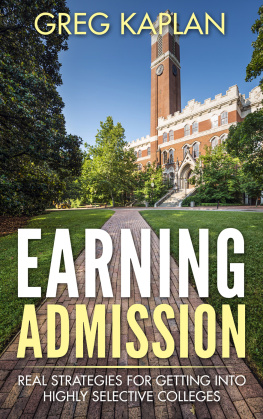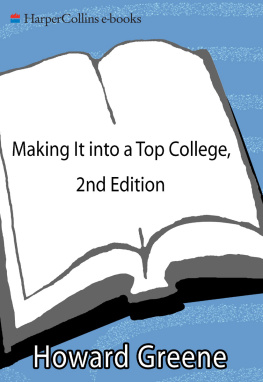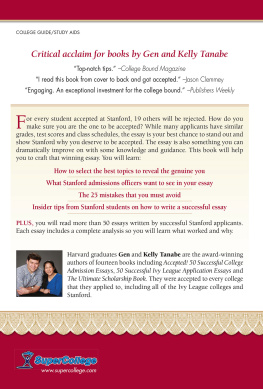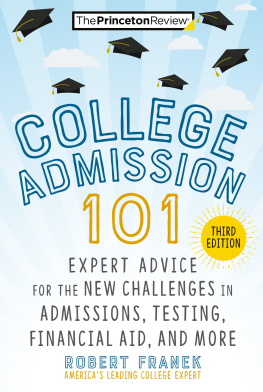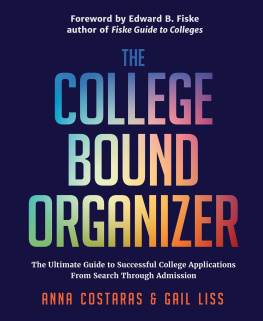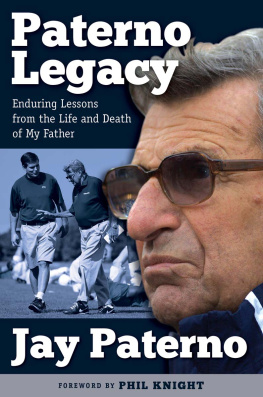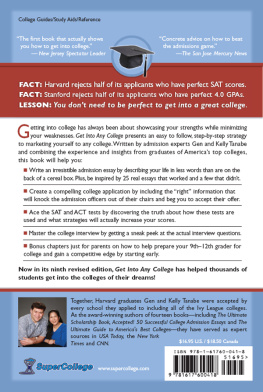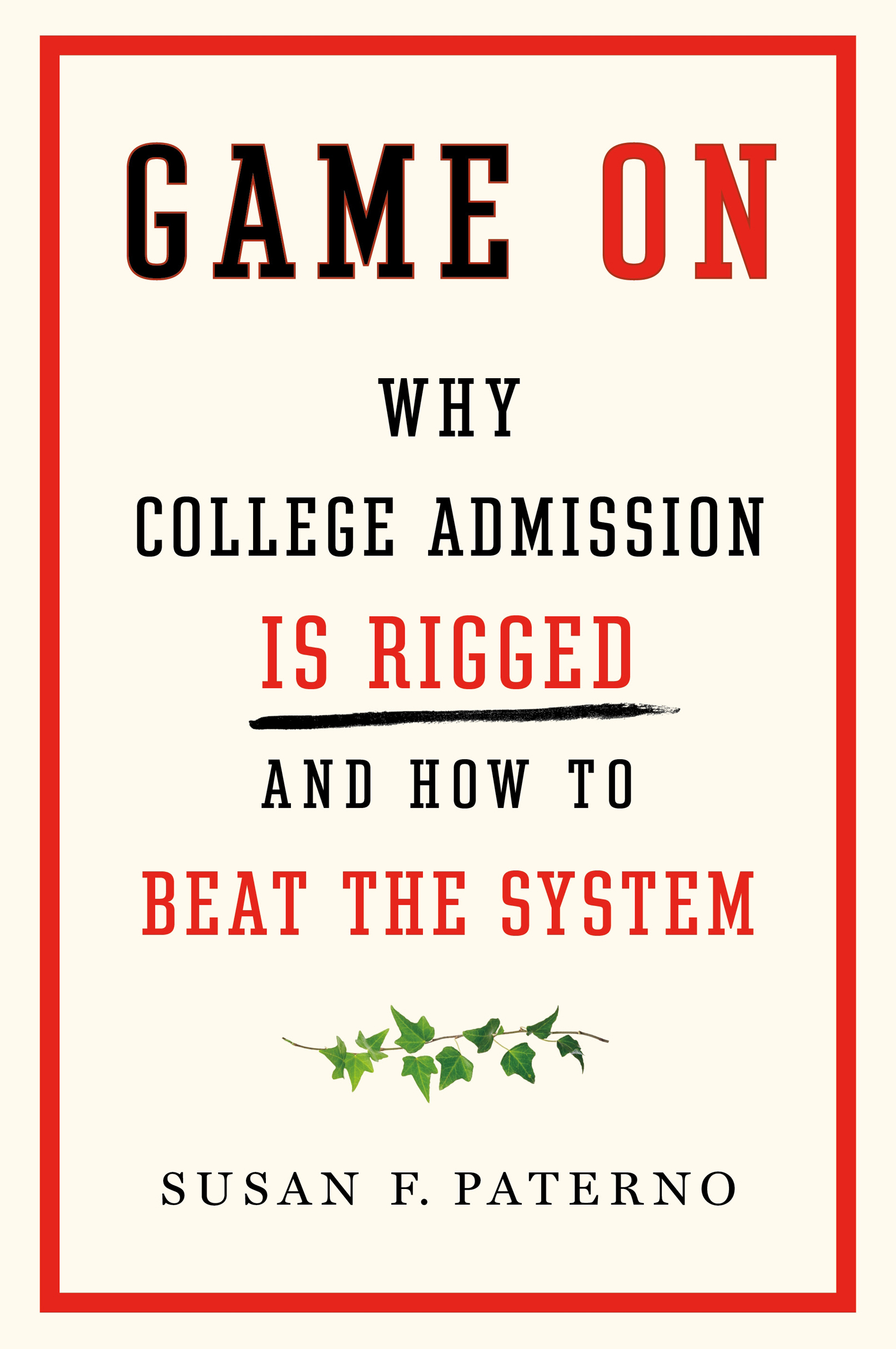The author and publisher have provided this e-book to you for your personal use only. You may not make this e-book publicly available in any way. Copyright infringement is against the law. If you believe the copy of this e-book you are reading infringes on the authors copyright, please notify the publisher at: us.macmillanusa.com/piracy.
The material in this publication is intended to provide general guidelines and is for informational purposes only. Although this publication is designed to offer current, accurate, and clear information, the subjects covered involve rapidly changing policies, processes, and laws. The publication is sold with the understanding that neither the author nor the publisher is engaged in rendering professional services. Readers should not regard this publication as a substitute for legal, investment, or other professional advice and, if professional advice or other expert assistance is required, the services of a competent professional should be sought.
The publisher makes no representations or warranties to readers or users with respect to the accuracy or completeness of the contents in this publication, makes no warranties of merchantability or fitness for a particular purpose, and specifically disclaims any responsibility for any liability, loss, or risk (financial, personal, or otherwise) that may be claimed or incurred as a consequence, directly or indirectly, of the use and/or application of any of this material.
Reference in this publication to products, websites, and other potential sources of additional information does not mean that the publisher endorses such products or the information or recommendations in such sources.
This book came out of my journey through the college admissions industrial complex, a pilgrimage Ive taken with four children over two decades. Ive experienced the changes I document, stumbling as the landscape became darker and more disorienting. Desperation drove me to dial Rick Singer in 2016, three years before he was arrested for masterminding the largest criminal conspiracy ever to influence undergraduate admissions. Thankfully, he never called back. Celebrities Felicity Huffman and Lori Loughlin, now convicted felons, probably wish Singer hadnt returned their calls either.
If anyone could, I should have seen the traps. Ive been a professional journalist since the 1980s and a college professor for nearly three decades. For six years, I was on my universitys faculty admissions committee sorting through hundreds of applicants. But even that didnt prepare me for the torturous slog that has come to characterize modern college admissions.
I want families to learn from my mistakes, to help them avoid sleazy consultants like Singer, to give them crucial information to stay ahead of the changes and make the college search less opaque, frustrating, and frightening. Id cheered two sons as they graduated from the University of California in the early 2000s, and a daughter as shed opened acceptances from Harvard and Yale a decade later. But by the time our last child started public high school in 2013, college admissions had escalated into a high-stakes game of emotional and financial survival.
I learned the truth at a 2015 workshop for parents with kids in high school called Reducing Test Anxiety. It quickly became a fear fest, with statistics to prove that students needed the highest possible test scores and grades to get the scholarships theyd need to make college affordable. Leaving the classroom, I bumped into one of the guidance counselors and sarcastically suggested that she rename the workshop Ratcheting Up Fear about Paying for College. She smiled. Oh, did you like it?
Before that night, I had no clear understanding of the connection between grades, test scores, and financial aid. That workshop taught me how colleges use financial aid to recruit the best-prepped and highest-achieving students. That was not how I remembered my own journey to college. When I graduated debt-free from Occidental College in 1980, tuition was $5,000. Its now close to $53,000 plus nearly $18,000 for room, board, and expensesmore than $70,000 a year, unaffordable for my husband and me, two teachers.
My husband paid his way through the University of Colorado in the 1970s as a cook in the dining hall, then as a caregiver for the sons of a faculty member. We had been married a few years by 1996, when my oldest stepson applied to the University of California, Berkeley, stress-free. It cost us $12,000 a year for room, board, and tuition. Three years later, his younger brother applied to the University of Santa Cruz, also stress-free. It cost $15,000 a year. Hassle-free government loans made it easy for us to borrow $160,000 to pay for both. That was our first big mistake.
By the time our third child started talking about college in 2008, we were in a precarious financial situation. Wed fallen into what Andrew Ferguson, author of the book Crazy U, calls the bottom quintile of the lower upper-middle class, highly educated but unable to afford private colleges without loans or significant tuition discounts. She told us she wanted to go east for college, maybe to Middlebury, Bowdoin, Amherst, Wesleyan, Carleton, or Williams. Her first choice was Swarthmore.
Swarthmore? I asked, puzzled, vaguely remembering the name from the Mamas and the Papas pop hit Creeque Alley. I had no clue it was one of the best colleges in the nation. Why do you want to go to Swarthmore?
The intellectual fervor! The honors program! The small classes! The research opportunities!
OK, I said. Apply to Swarthmore, I said.
Its Swathmore, she said, correcting me. No r.
Her journey to college was befuddling, like her childhood obsession with the soundtrack to the musical Carousel. We nicknamed her Boo, after Buddha, an old soul trapped in a toddlers body. Before preschool one day she pronounced, No gold is worth your love. She quoted Eleanor Roosevelt to chase away a third-grade bully and exhausted us with intellectual pursuits. In fourth grade, we spent hours in thrift shops looking for the perfect Eva Pern Halloween costume. Shed planned and executed every birthday party and family vacation on meager budgets since she was ten.
In ninth grade, she began researching colleges as though she were writing a doctoral thesis, and obsessively reading the New York Times college admissions blog The Choice. By tenth grade shed expanded her college list to include Harvard and Yale, an alarming development given the single-digit acceptance rates. It seemed a prescription for disappointment. At least shes not interested in Stanford, I told a friend the next day at lunch.
My friend had spent years compulsively plotting her sons admission to a top-tier liberal arts college. I wanted to know her thoughts about my plan to convince Boo to apply to Occidental. Shes a legacy. Shell get in.
Youre not seriously going to let her go there? She sniffed. A second-tier college?
Occidental? Second tier? Says who?
She scoffed. Clearly you havent seen the latest U.S. News


